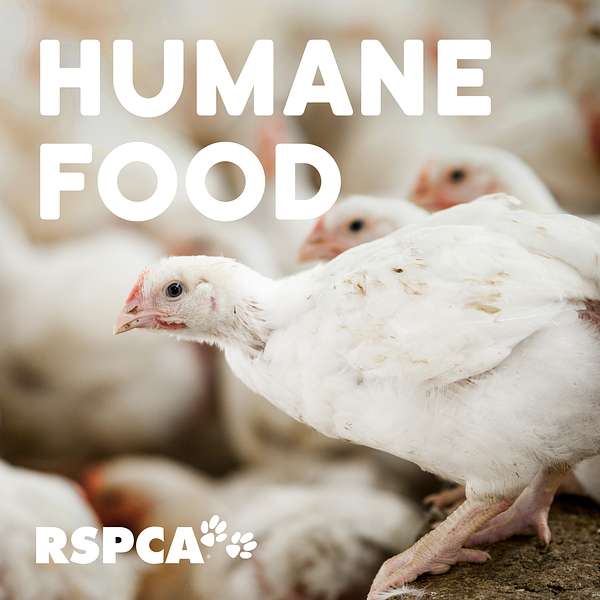
RSPCA Australia's Humane Food Podcast
RSPCA Australia's Humane Food Podcast
What’s the problem with cage eggs and why are hens still in cages today? With Jed and Sarah from the RSPCA
Brian Daly interviews RSPCA Australia’s Farm Animal Scientific Officer Dr Sarah Babington and Senior Policy Officer Dr Jed Goodfellow.
In recent years there has been a decline in grocery sales of cage eggs, indicating that more Australian consumers are choosing cage-free eggs in the supermarket. But with overall egg consumption increasing, and eggs being used in various products, the total number of Australian hens confined to cages has not yet significantly dropped.
There are inherent animal welfare issues associated with the farming of hens in cages, and the RSPCA has been calling for an end to the battery cage in Australia for decades.
Many countries globally have now phased out the use of battery cages for egg production, with some investing in furnished cages. These cage systems are different to a battery cage, with more space, provision of nest boxes and may have additional enrichment. They also retain the benefits of battery cage systems in relation to hygiene and disease control.
However, while there are some provisions to allow greater behavioural expression, the hens’ full behavioural repertoire is not able to be expressed satisfactorily in furnished cages. Hens are also still confined for their entire lifetime, standing on wire floor and suffering health impacts like osteoporosis. Therefore, these cages do not offer a complete solution with regards to hen housing.
The RSPCA advocates for a transition to cage-free production systems that meet all the hens’ health and welfare needs while allowing them to exhibit important natural behaviours.
Many well-known brands in the Australian food industry are already using cage-free eggs or are transitioning to using cage-free eggs. Companies like these are proving every day that you can build a successful and profitable business based on good animal welfare; and that we can produce affordable, safe, healthy cage-free eggs on a large scale.
But the RSPCA knows that to see a drop in the number of hens confined to cages there must be a legislated phase out. Over 75% of OECD nations have already committed to transitioning their egg industries away from inhumane battery cages. Australia has yet to follow.
The national Animal Welfare Standards and Guidelines for Poultry are currently under review for the first time in over a decade. The RSPCA has been involved in this process for the past five years, and understands that an independent panel has been appointed to supervise the draft of a new standard which will be presented to Agriculture Ministers later in 2020.
This is the time for state and territory governments to step up, acknowledge the science, respond to the community, and finally end this cruel and outdated farming practice.
In addition to calling on governments to phase out the battery cage, the RSPCA encourages Australians to support those producers doing the right thing by choosing cage-free eggs, both in the supermarket and when you’re eating out.
Key points:
- What are the animal welfare issues associated with cage egg production
- How cage egg production differs to cage free/barn and free range
- What companies are doing in Australia to get hens out of cages
- The latest update on where Australian legislation is at with poultry welfare
Further links:
https://www.rspca.org.au/take-action/layer-hens
https://www.rspca.org.au/take-action/layer-hen-welfare/cage-free-proud